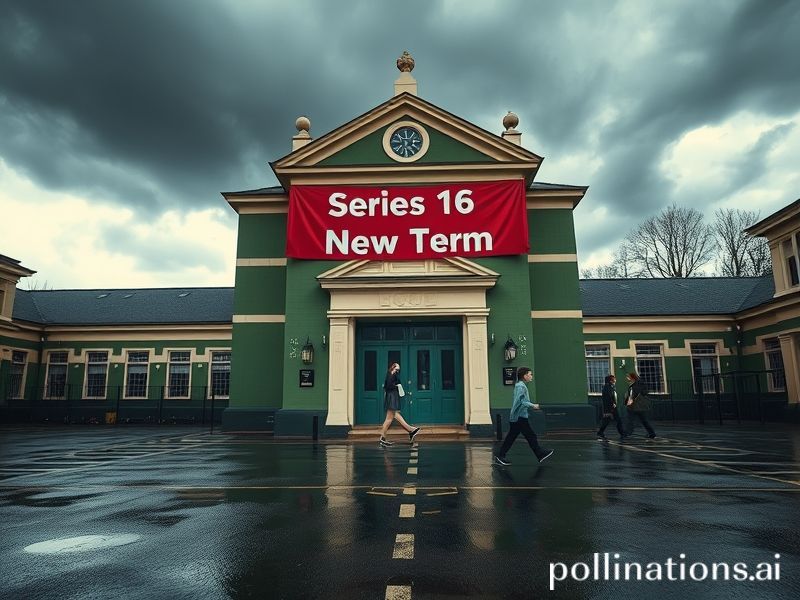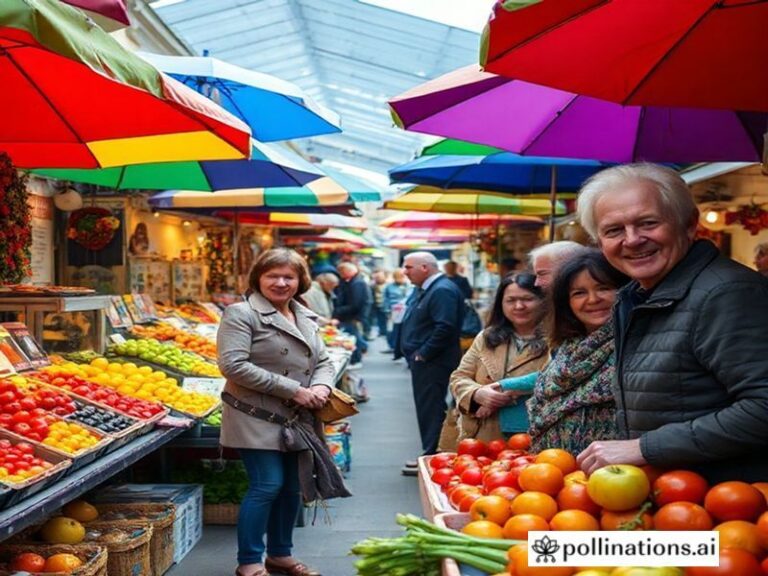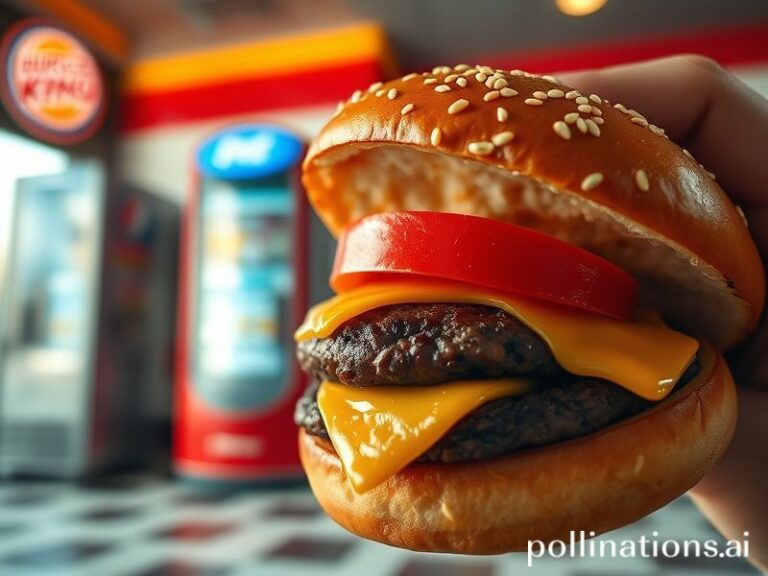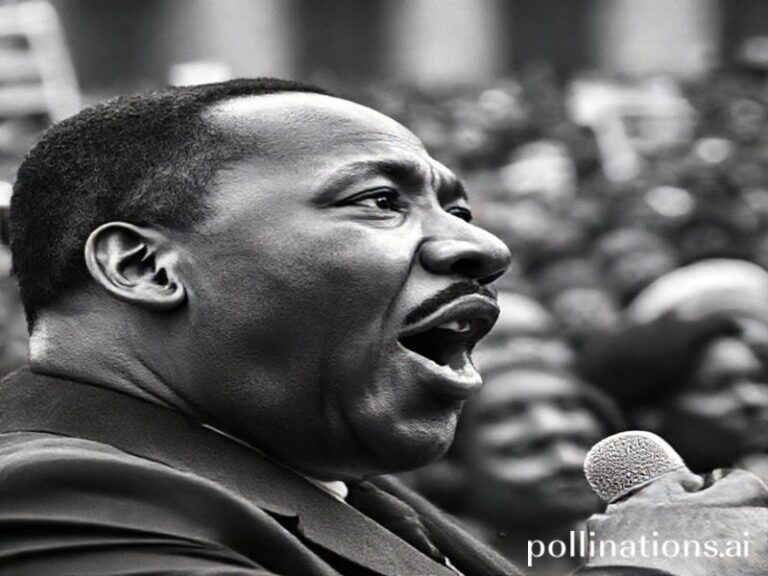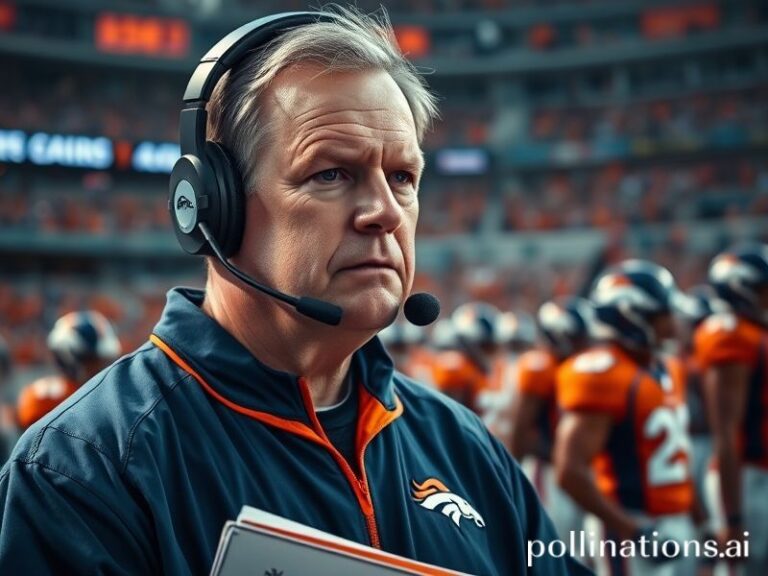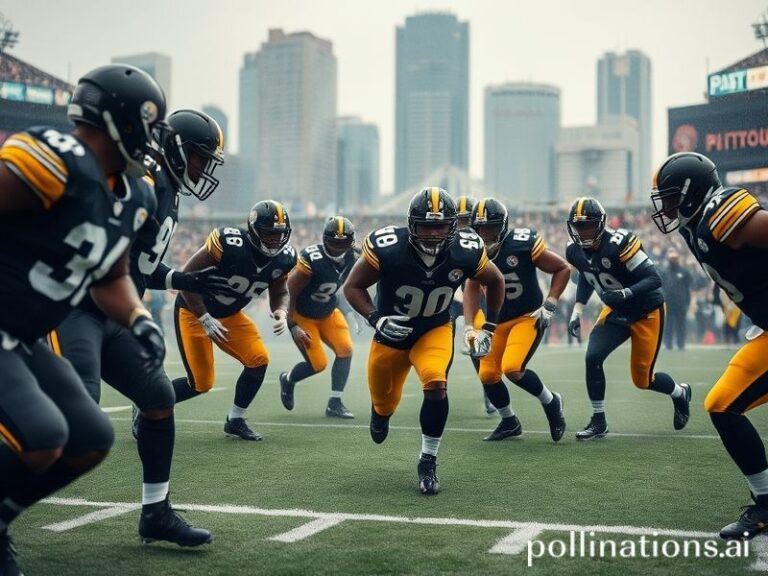Waterloo Road Series 16: The British School Show Now Dictating Global Policy (Yes, Really)
Waterloo Road, Series 16: How a Fictional Manchester Comp Re-Educated the Planet
By the time Series 16 of Waterloo Road dropped on BBC iPlayer, the world had already endured two years of pandemic home-schooling, one attempted coup in the United States, and the quiet realisation that most teenagers now learn geopolitics from TikTok. Against that backdrop, a crumbling Manchester academy once again became the unlikely Rorschach test for our collective moral panic—except this time the pupils had stronger Wi-Fi than the UN Security Council and the staff room doubled as a pop-up trauma ward.
Globally, the rebooted Waterloo Road has become a sort of Anglophone telenovela for policy wonks. In Singapore, Ministry of Education officials reportedly binge it as a cautionary tale: “See what happens when you let children express emotions.” Meanwhile, German Bundesländer have adopted the show’s rotating-headteacher model as an avant-garde metaphor for coalition politics; every episode ends with someone resigning in disgrace, which makes coalition negotiations look positively stable. From Lagos to Lima, the series streams with subtitles that try valiantly to translate “scran” and “proper mint” into languages that still possess dignity.
The curriculum chaos on screen mirrors real-world syllabi fights from Florida to Florida-on-Thames. When Waterloo Road’s newly appointed “Head of Sustainability” confiscated a diesel generator being used to power a clandestine vape ring, the scene trended on Brazilian social media under the hashtag #EscolaSemFossil, briefly knocking World Cup replays off the trending page. In Delhi, where half the city’s schools have been shut by smog thicker than the show’s plotlines, parents circulated memes comparing the fictional generator to the actual coal plants still running the national grid. One Delhi dad told me, “At least the British kids get a generator; we just get darkness and moral superiority.”
Series 16’s pièce de résistance is the introduction of a UN-funded “conflict resolution module” taught by an ex-Marine turned drama teacher whose signature move is making pupils re-enact the Good Friday Agreement using only yoghurt pots and existential dread. The module has since been adopted—sans irony—by three peacekeeping academies in the Sahel. A spokesperson for MINUSMA admitted, off the record, that the yoghurt-pot exercise achieved “marginally better outcomes” than the usual PowerPoint on ceasefire semantics, though he cautioned that local goats kept eating the props.
Meanwhile, the show’s depiction of food insecurity has triggered a minor diplomatic incident. When canteen scenes revealed that the free-school-meal portions would barely sustain a fruit fly, the Norwegian embassy in London sent the BBC a crate of brunost cheese “for educational purposes.” The crate was intercepted by Year 11 and traded on the black market for vape pods. Norway has since requested extradition of the ringleader, who insists he was merely practising “supply-chain arbitrage,” a term he picked up from an online economics A-level he’s doing between detentions.
Perhaps most emblematic of our era is Waterloo Road’s new AI guidance counsellor, “Ms. ChatGPT-4.” Programmed to deliver only evidence-based pastoral care, she crashed within 48 hours after pupils fed her enough teenage angst to qualify as a war crime dataset. The UN High Commissioner for Human Rights is now investigating whether the bot’s final output—“have you tried turning your trauma off and on again?”—constitutes cruel and unusual advice. Silicon Valley VCs, ever alert to fresh dystopias, have already floated a Series B round for a start-up promising “empathy-as-a-service” in 47 languages, none of which include Scouse.
And yet, for all the global hand-wringing, Waterloo Road remains stubbornly local: a damp northern school where the heating gives up more often than the staff, and where every fire alarm is just another Tuesday. That, perhaps, is its darkest joke. While the planet burns, floods, or argues about which historical atrocity to teach first, a fictional comp in Greater Manchester keeps pumping out children who believe the biggest crisis is who nicked whose vegan sausage roll. In that sense, the show isn’t just a mirror—it’s a mercy. It lets the rest of us watch, sip something strong, and pretend our own school days were merely catastrophic instead of apocalyptic.
The bell rings. Roll credits. Another generation files out, armed with nothing but a BTEC in resilience and the faint hope that somewhere, a yoghurt pot still believes in peace.

